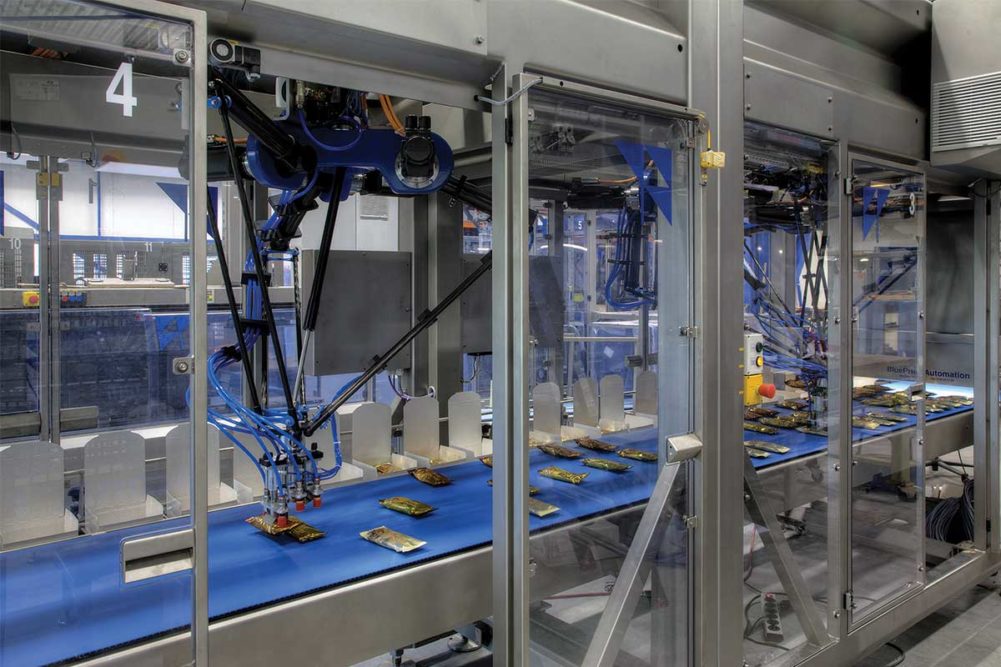With today’s tight labor market, finding a maintenance technician to keep a bakery running smoothly can be tough. It can be even more difficult if the operation has advanced technology like robotics.
However, with training, remote assistance and other tools, bakeries don’t have to worry about it as much as they did in the past.
“The idea that the implementation of robotics somehow increases the skill level required in a bakery does not really hold true,” noted Rick Hoskins, chief executive officer, Colborne Foodbotics.
“A well-designed system that’s implemented properly should result in a bakery never having to do much in terms of maintenance or programming of a robot,” he added. “In fact, for most robotics systems, once the system is implemented, it is a set-it-and-forget-it piece of equipment. No different than a motor on a conveyor. The maintenance and troubleshooting of these systems are much more in the end-of-arm tooling and the ancillary equipment around the robot. All of which are routine items for a bakery to support.”
Moreover, Giorgio Calorio, sales account manager at Schubert North America, recommended periodic onsite training for operators and technicians along with implementing preventive maintenance.
“This way, bakeries can better manage the resources they have, instead of running from an emergency to another and then not having enough workforce to allocate,” he said.
BluePrint Automation (BPA) offers onsite training with its aftermarket and service group. Michael Cothran, BPA’s north central sales manager, said the company tailors materials specific to a project along with onsite job training and teaching in a classroom-type setting.
“We try to give us much onsite/on the job training as possible during startup as well,” he said.
The company also offers an asset health reliability program where BPA technicians go to the bakery and train and assess the state of the supplied equipment. With Robots as a Service, the robotic manufacturer owns and maintains the equipment while the bakery hires the robots for a set duration at an hourly rate.
“This is a unique way to dive into robotics without investing a ton of upfront capital or having an extremely skilled staff,” Mr. Cothran said.
ABI Ltd. offers customized human machine interface (HMI) on its equipment that’s specially developed for the bakery industry.
“In addition to standard HMI functionalities, it also allows any operator to understand and get the information needed quickly without advanced equipment machine knowledge,” said Felix Pang, sales engineer, ABI. “During commissioning, ABI teams also train the future operators and/or other team members if requested by the customer.”
Craig Souser, president and CEO, JLS Automation, suggested that bakers ensure that their supplier can provide service as well as training.
“Remote support, while at times an IT challenge, should be built in as it’s a great way to bring the expert to the line,” he said. “Remote support technology like augmented reality opens up even better support and increases responsiveness dramatically.”
Jamie Bobyk, marketing manager, Apex Motion Control, noted that cobots are easier to maintain, and most remote service can be done via cell phone or video cam.
Harley Green, strategic business director at Soft Robotics, recommended that bakeries use the maintenance of robotics as an opportunity to upskill existing employees and potentially gain retention benefits from this investment. Or bakers can invest in a service contract to make sure the robotics run smoothly.
“Be sure to communicate your needs for today as well as the future when having these discussions,” he advised.
This article is an excerpt from the April 2023 issue of Baking & Snack. To read the entire feature on Robotics, click here.




